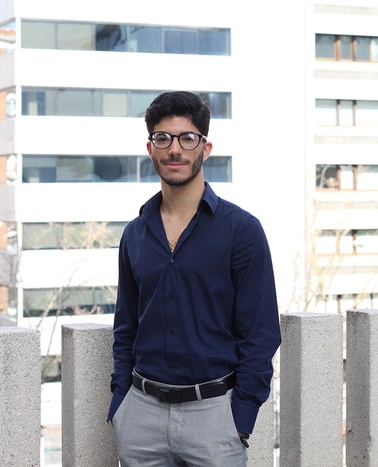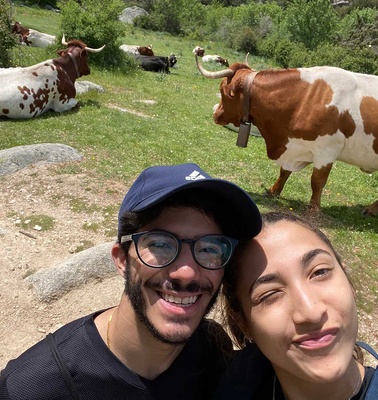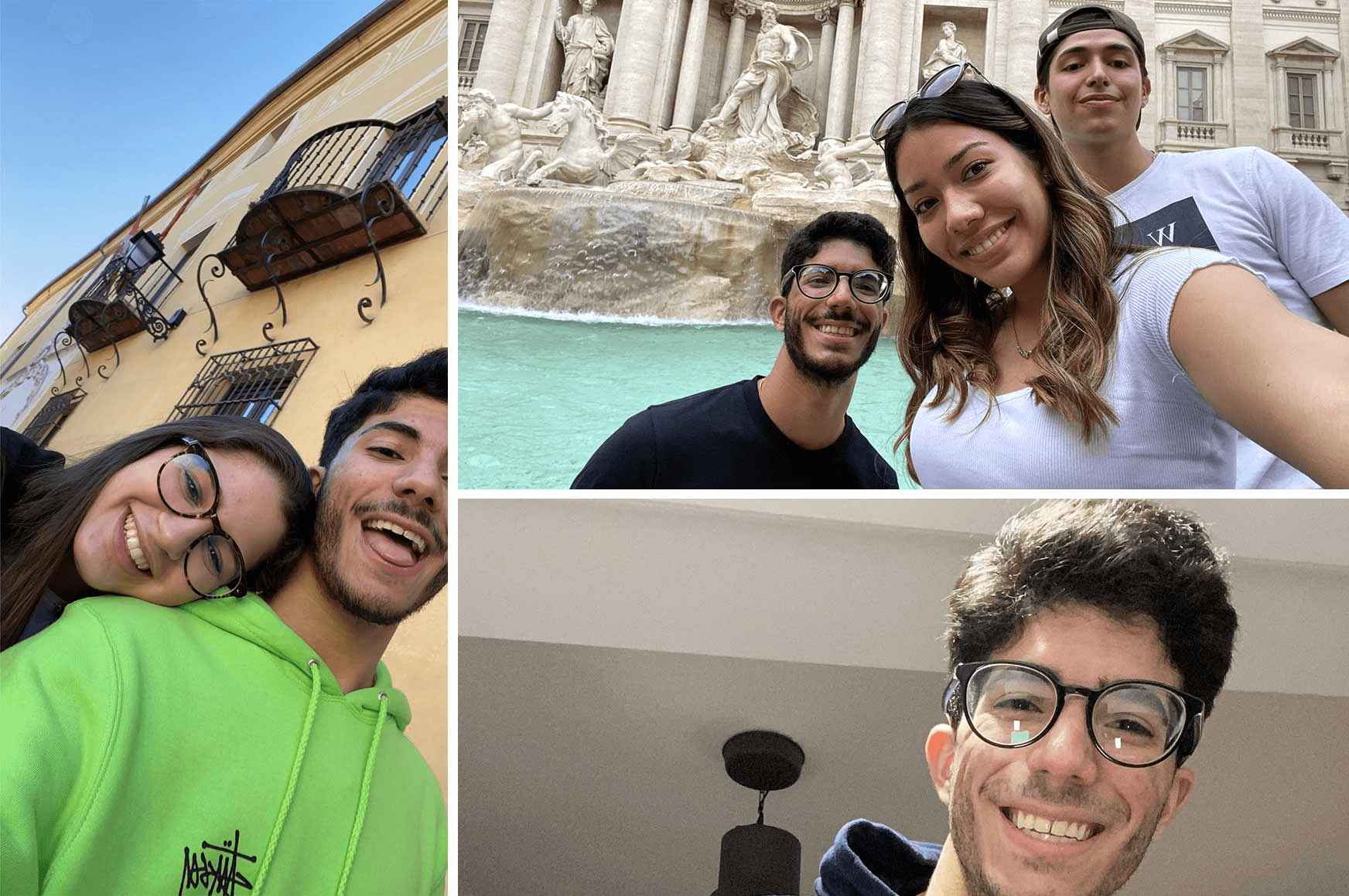
Pedro Raful
I was born in Santo Domingo in the Dominican Republic, but moved to the US at just 10 years old. That’s where I’ve spent most of my time outside of the Dominican Republic, but I’ve also lived in Colombia, Mexico, Panama and now Spain. I had always been a curious kid, and that curiosity was enriched by all the places and people, experiences, and constant adventures I encountered. I’m aware that I had by no means a typical childhood—it was a continuous cycle of change of friends, schools, teachers, and places. Ultimately, these changes and the way I adapted to them helped me become the person I am today, and the person I’ll become.

"There’s a close-knit community of people who have a world of experience and insight in so many different topics. Learning is fostered not only in the classroom but also in day-to-day interactions with professors, staff and students."
Finding his true path among the many
With his wide and varied interests, Pedro had seriously considered several possible career paths before he came to IE University. For a long time he wanted to be a doctor, specifically a neurologist, but he came to realize that wasn’t the path for him. He later contemplated training as a professional chef, with the aim of opening his own restaurant.
Ultimately, though, he came to the conclusion that law was the only profession he’d be happy pursuing. Feeling strongly about helping others through an established system, Pedro recognized that law is a career path in which he can make a positive impact not only on people but on the imperfect systems themselves.
As for why he chose IE University specifically, Pedro cites the close-knit community of people with different experiences and insight on a broad range of topics. It’s a place, he says, where learning is fostered not only in the classroom but in day-to-day interactions with faculty, staff and fellow students. Sharing a global mindset but each with a unique background and experiences, Pedro wants to hear everybody’s story. His IE University experience has been “nothing but pure excitement” he asserts, from the teaching methodology to the exposure to bustling Madrid. Together, these factors have encouraged him to step outside of his comfort zone.
While he may have decided on law, Pedro has chosen his degree as it keeps his options open. It could open doors to legal consultancy, to becoming a lawyer or even into politics or diplomacy, a fact he ascribes to our comparative law methodology. That flexibility has, he says, also been demonstrated in IE University’s response to the pandemic. Thanks to Liquid Learning, the infrastructure was already in place to allow students to continue their studies uninterrupted.
Moreover, learning outside of the classroom has allowed Pedro to continue studying at his own pace, as he completes readings, assignments and other activities without a rushed timetable. He asserts that he has better absorbed the program material that way, rather than simply memorizing it.

Outside of his curricular and extracurricular activities at the university, Pedro notes that his passion project is his Formula One podcast. For each episode, he gives his thoughts on the latest trends and topics in the sport, particularly the races. Besides this, he spends his free time working on himself through meditation, exercise and—his second passion—cooking.
Looking forward, Pedro’s aspirations for the future are to first become a well-established IP lawyer in the US and then to become a politician, most likely back in the Dominican Republic. He reflects that there is so much potential back in his home country in terms of both developing the economy and helping people thrive with a government whose main interest is not the 1%, but rather the 99% of the population.
Pedro notes that the Talent & Careers Department has provided him with the perfect platform to launch his future career. Currently, he is an intern at the Embassy of the Dominican Republic in Spain, where he is working on diplomacy and international law.
In Pedro’s humble opinion, success is only measured by one person—and that’s you. Having a predetermined idea of what success looks like doesn’t make it true. For Pedro personally, success is how satisfied you are when you reach the goals you set for yourself, and when you’re able to look back and feel proud of the work you’ve done.